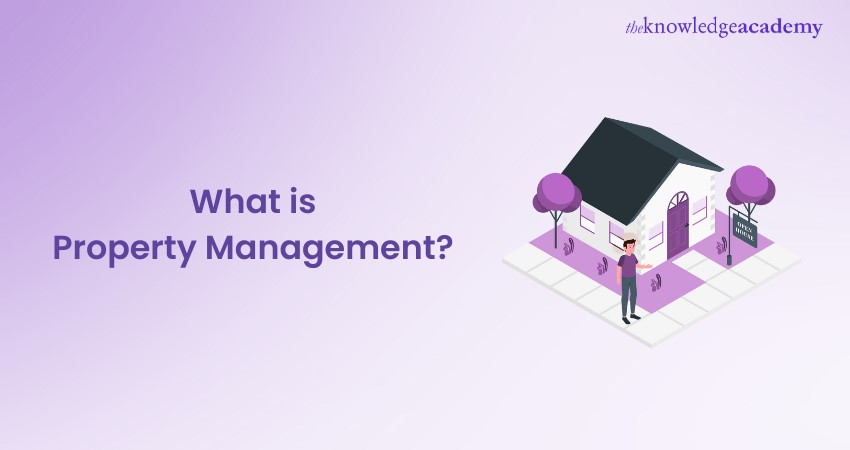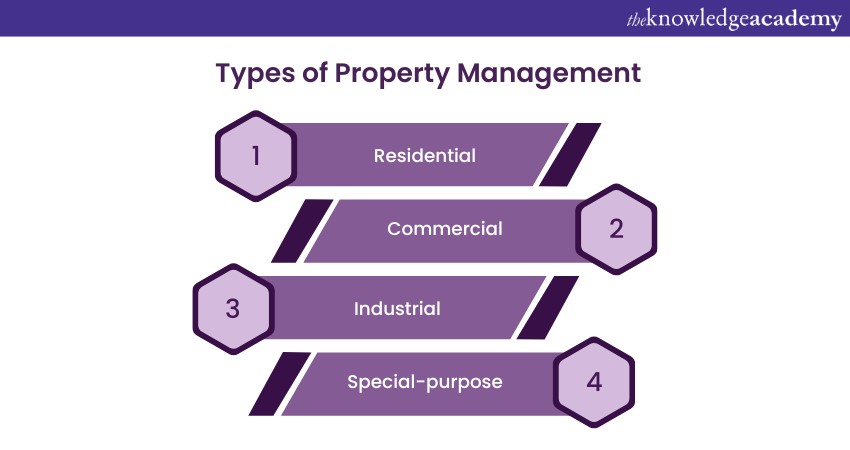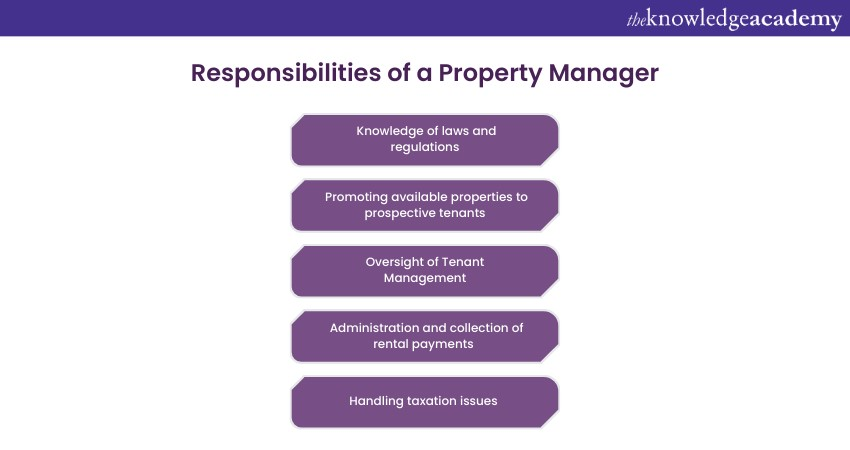We may not have the course you’re looking for. If you enquire or give us a call on + 1-866 272 8822 and speak to our training experts, we may still be able to help with your training requirements.
Training Outcomes Within Your Budget!
We ensure quality, budget-alignment, and timely delivery by our expert instructors.

Property Managers are the hidden champions of the real estate world, quietly orchestrating the smooth operation of homes, offices, and factories. They’re the ones who make sure everything runs without a hitch for both Property Owners and those who live or work there. Ever curious about what makes Property Management so vital to real estate triumph? This in-depth blog will guide you through its complexities, shedding light on its essential role in preserving and boosting the worth of property investments.
Ready to explore the importance of top-notch Property Management in today’s real estate scene? Let’s jump right in for a full understanding of this dynamic field.
Table of Contents
1) Understanding What is Property Management?
2) Different types of Property Management
a) Residential
b) Commercial
c) Industrial
d) Special-purpose
3) Responsibilities of a Property Manager
4) Conclusion
Understanding What is Property Management
Property Management acts as the operation, control, and oversight of real estate, both residential and commercial. It involves the oversight of a Property by a third party, typically a professional Property Manager or a relevant company.
These managers are proficient in handling various real estate types, including residential, commercial, industrial, and Properties, with specific purposes.

Different Types of Property Management
After learning What is Property Management, let’s have a look at its various types. Some companies offer management services tailored to specific Property types, while others provide management services across a broad spectrum. The scope of managed Property types is extensive. The following are the different types of Property Management:

Residential Property Management is the comprehensive administration of residential properties, ensuring their efficient operation and profitability for owners. It involves a variety of duties, including tenant acquisition, maintenance coordination, financial oversight, and legal compliance.
Key responsibilities include:
a) Tenant Management: Marketing properties, screening applicants, managing leases, and maintaining positive landlord-tenant relations.
b) Maintenance: Overseeing routine upkeep and addressing emergencies to preserve property value and tenant satisfaction.
c) Financial Management: Collecting rent, budgeting, and providing financial reports to optimise investment returns.
d) Legal Compliance: Staying informed about rental laws and ensuring property operations meet regulatory standards.
2) Commercial
Commercial Property Management is an indispensable part of the real estate sector, focusing on the administration, operation, and supervision of commercial real estate, including office spaces, retail units, and industrial sites. This multifaceted role is dedicated to enhancing the value and profitability of these properties, while simultaneously catering to the needs of tenants and owners. Key areas of responsibility include the following:
a) Lease Administration: At the heart of commercial Property Management lies lease administration. Managers take charge of the entire leasing process, from marketing vacancies and vetting prospective tenants to negotiating leases and overseeing renewals. Their goal is to secure terms that benefit all parties, uphold lease conditions, and ensure rents are paid promptly. Effective lease administration is essential for maintaining high occupancy levels and optimising rental revenue.
b) Tenant Relations: Building and maintaining strong tenant relationships is crucial. Property Managers serve as the primary liaison for tenants, addressing their issues, mediating disputes, and fostering open communication with owners. Positive tenant interactions are key to encouraging renewals and reducing turnover, ultimately contributing to the Property’s success and tenant satisfaction.
c) Maintenance and Facility Management: Ensuring that properties are well-maintained and compliant with regulatory and safety standards falls under the purview of Property Managers. They organise regular upkeep, repairs, and upgrades, and respond swiftly to emergencies. Proactive management of the Property’s physical condition not only boosts its attractiveness and functionality but also its market value.
d) Financial Management: Property Managers are also tasked with financial stewardship, encompassing rent collection, managing expenses, budgeting, and financial reporting. They scrutinise financial data, keep an eye on operational costs, and furnish owners with detailed financial statements. Through strategic financial planning and meticulous record-keeping, managers assist owners in reaching their financial goals.
e) Regulatory Compliance: Moreover, Commercial Property Managers ensure that properties comply with all legal and regulatory mandates. They remain abreast of zoning laws, building codes, and safety regulations, ensuring that the Property’s operations are within legal bounds, thereby reducing legal exposure for owners.
3) Industrial
Industrial Property Management is essential for the efficient functioning and optimisation of warehouses, manufacturing sites, and distribution centres. It involves:
a) Lease Management: Property Managers oversee the leasing cycle, from advertising spaces to finalising lease renewals, ensuring terms meet industrial needs like storage and transport access. This boosts occupancy and revenue.
b) Tenant Relations: Managers act as intermediaries between tenants and owners, resolving concerns and fostering communication, which is key to tenant satisfaction and lease continuity.
c) Maintenance and Facility Management: Routine upkeep and compliance with safety standards are managed to ensure the Property’s efficient and safe operation, contributing to a secure and sustainable environment.
d) Operational Efficiency: Property Managers focus on space utilisation, workflow enhancement, and logistics improvement, collaborating with tenants for operational advancements and cost savings.
e) Financial Management: They are responsible for financial tasks including rent collection and budgeting, aiming to maximise investment returns through strategic financial management.
Take control of your financial future - join our Investment Management Course to gain valuable insights and strategies for maximising returns.
4) Special-purpose
It is important to note that various Property types do not neatly align with the categories yet demand efficient Property Management. Such Properties encompass the following:
a) Theaters
b) Sports arenas
c) Resorts
d) Senior care facilities
e) Schools, and universities
f) Places of worship
Despite their diversity, these Properties still necessitate dedicated oversight and effective management practices.
Secure your Real Estate success with our comprehensive Real Estate Risk Management Training – navigate the market confidently!
Responsibilities of a Property Manager
In Property Management, the degree of a Property Manager's accountability is contingent upon the terms outlined in the contract with the landlord. For landlords, the preference may be to engage a Property Manager solely. In contrast, others may opt for a comprehensive management approach, entrusting the Property Manager with all facets of Property oversight. But What Does a Property Manager do? Lets’s take a look into that:

1) Knowledge of Laws and Regulations
To excel as a proficient Property Manager, a comprehensive understanding of state and national tenant issues is essential. This encompasses knowledge of the following:
a) Tenant screening
b) Eviction procedures
c) Lease termination and other relevant aspects
Mastery of these regulations not only enhances your fairness but also contributes to your overall effectiveness as a Property Manager.
2) Promoting Available Properties to Prospective Tenants
Property owners often enlist the services of agents primarily to facilitate the sale of their Properties to prospective tenants. This entails photographing and strategically listing the Property on various platforms, including housing websites. The extent of marketing efforts directly correlates with the likelihood of attracting attention to the Property. A heightened interest generated by the Property Manager enhances the chances of making informed decisions when selecting the most suitable tenant for the Property.
3) Oversight of Tenant Management
Property Managers are pivotal in maintaining Property integrity and tenant satisfaction. They oversee tenant selection, lease management, and address emergencies. At move-in/out, they assess the Property’s condition, crucial for refunding deposits. They ensure properties are pristine and repaired for new tenants. In case of lease breaches, they manage the eviction process, maintaining Property standards and owner interests.
Unlock your real estate managing skills with our Real Estate Financial Modelling Training – empower your decisions, elevate your investments.
4) Administration Collection of Rental Payments
In Property Management, overseeing rent constitutes a primary responsibility for Property Managers. This involves determining the rental price for the Property, a task that requires a thorough assessment of the Property itself, its location, and the prevailing market conditions.
Upon the tenant's occupancy, the Property Manager collects rent on a designated date and through an agreed-upon method. The Property Manager can adjust rental rates, provided such changes adhere to applicable state or city laws.
5) Handling Taxation Issues
Homeowners might find it beneficial to enlist the services of a Property Manager when dealing with their tax obligations. This assistance may extend to the Property Manager taking on the responsibility of filing the Property taxes on behalf of the homeowner in certain situations.
Unlock your potential with our Investment and Trading Training – Learn the art of smart investing and trading to secure your financial future.
6) Handling Maintenance Requests and Repairs
A Property Manager’s primary duty is to maintain the premises, ensuring they are livable and secure by swiftly addressing repair and maintenance issues, including water leaks, pest control, and garbage disposal. They may personally undertake these tasks or engage specialists like plumbers or electricians. Diligent upkeep by the Property Manager leads to tenant contentment and increases the Property’s allure to potential renters.
7) Supervising Other Employees
Property Managers oversee any additional staff on the premises, including security personnel. Their responsibilities encompass negotiating salaries and conducting terminations when necessary.
8) Managing the Budget
They are tasked with the administration of the Property’s financial plan and vital documentation, which entails managing the Property’s funds, coordinating tenant agreements, addressing grievances, and overseeing maintenance expenses.
Start Your Journey to Financial Freedom! Join Our Cryptocurrency Trading Training and Learn to Navigate the World of Digital Assets with Confidence!
Conclusion
Property Management is like the magic behind the curtain, turning empty spaces into lively neighbourhoods and investments into treasures that stand the test of time. It’s the unsung hero of the real estate world, making sure buildings don’t just stand there but really come to life. Grasping its full scope is crucial for tapping into the true power of real estate.
Boost your potential and elevate your Real Estate career – join now for our Real Estate Agent Course!
Frequently Asked Questions

A Property Manager must be equipped with skills like strong communication, marketing, customer service skills, tech-savviness, financial management. They should also have excellent negotiation skills, time management, adaptability, problem-solving, and so on.

To turn into an efficient Property Manager, you must hold the General Property Management Certificate of Secondary Education (GCSE). To land your dream job, you should consider earning a related bachelor's or master's Degree.

The Knowledge Academy takes global learning to new heights, offering over 30,000 online courses across 490+ locations in 220 countries. This expansive reach ensures accessibility and convenience for learners worldwide.
Alongside our diverse Online Course Catalogue, encompassing 17 major categories, we go the extra mile by providing a plethora of free educational Online Resources like News updates, Blogs, videos, webinars, and interview questions. Tailoring learning experiences further, professionals can maximise value with customisable Course Bundles of TKA.

The Knowledge Academy’s Knowledge Pass, a prepaid voucher, adds another layer of flexibility, allowing course bookings over a 12-month period. Join us on a journey where education knows no bounds.

The Knowledge Academy offers various Investment and Trading Trainings, including the Real Estate Financial Modelling Training, Real Estate Risk Management Training, and Day Trading Course. These courses cater to different skill levels, providing comprehensive insights into Incremental Budgeting.
Our Business Skills Blogs cover a range of topics related to Property Management, offering valuable resources, best practices, and industry insights. Whether you are a beginner or looking to advance your Business skills, The Knowledge Academy's diverse courses and informative blogs have got you covered.
Upcoming Business Skills Resources Batches & Dates
Date
 Real Estate Agent Course
Real Estate Agent Course
Fri 10th Jan 2025
Fri 14th Feb 2025
Fri 11th Apr 2025
Fri 13th Jun 2025
Fri 8th Aug 2025
Fri 26th Sep 2025
Fri 21st Nov 2025







 Top Rated Course
Top Rated Course


 If you wish to make any changes to your course, please
If you wish to make any changes to your course, please


